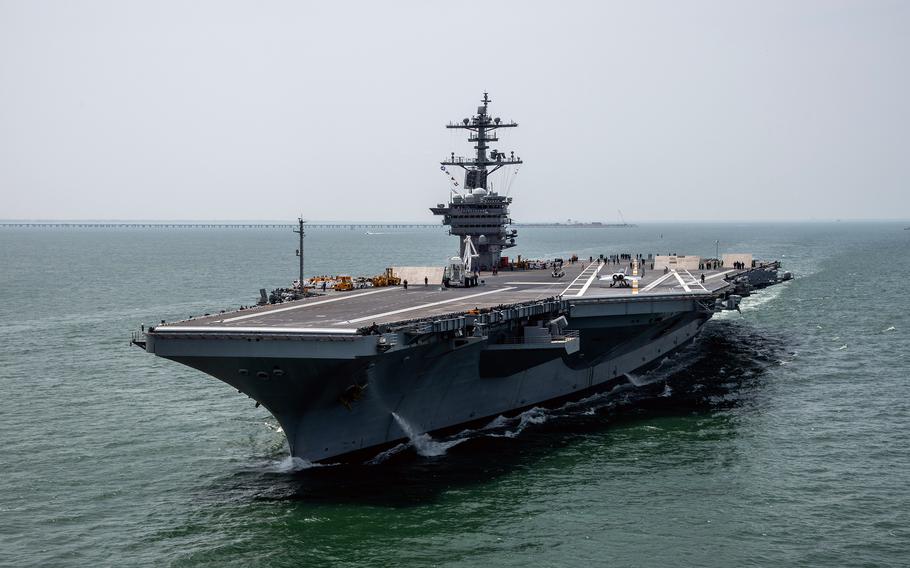
The aircraft carrier USS George Washington departs Newport News Shipbuilding in Virginia for sea trials on May 22, 2023. (Lexi Whitehead/Newport News Shipbuilding)
The USS George Washington is back in Navy hands after an extended, six-year maintenance period at Huntington Ingalls’ Newport News Shipbuilding in Virginia.
The company, which built the aircraft carrier in the 1980s, officially returned, or “redelivered,” it following three days of sea trials, the company said in a news release Thursday.
The George Washington since August 2017 has been in the Virginia shipyard for its midlife nuclear refueling and overhaul, a process expected to last four years but that ran into overtime due to the COVID-19 pandemic and other setbacks.
“George Washington has gone through a transformation and now returns to the fleet as a fully recapitalized ship, ready to support any mission and serve our nation for another 25 years,” Todd West, vice president of in-service aircraft carrier programs at the shipyard, said in the news release.
The sea trials, which began May 22, included high-speed operations and tests designed to “prove system performance” and demonstrate the carrier’s various capabilities at sea, Huntington Ingalls said.
Sometime next year, the George Washington is scheduled to return to Yokosuka Naval Base, the ship’s homeport south of Tokyo from 2008 to 2015. It will replace the USS Ronald Reagan as the centerpiece of the U.S. 7th Fleet’s carrier strike group.
The Ronald Reagan, which arrived at Yokosuka in 2015, will return for maintenance to Puget Sound Naval Shipyard in Bremerton, Wash., Naval Forces Japan announced in April.
“The Navy positions many of its most advanced capabilities in Japan in recognition of the importance of our alliance,” Naval Forces Japan spokeswoman Cmdr. Katie Cerezo told Stars and Stripes by email April 28. “This turnover will ensure continued carrier presence in the region.”
George Washington’s overhaul concludes just over a week after the Navy released the results of an investigation into the ship’s “command climate and sailor quality of service.” The Navy launched the investigation after three crewmember suicides over one week in April 2022.
The report found numerous factors contributed to the ship’s mental health crisis, such as insufficient manning, poor working and living conditions and an insufficient number of mental health professionals to meet demand.
The carrier has lost nine sailors to suicide since 2017.